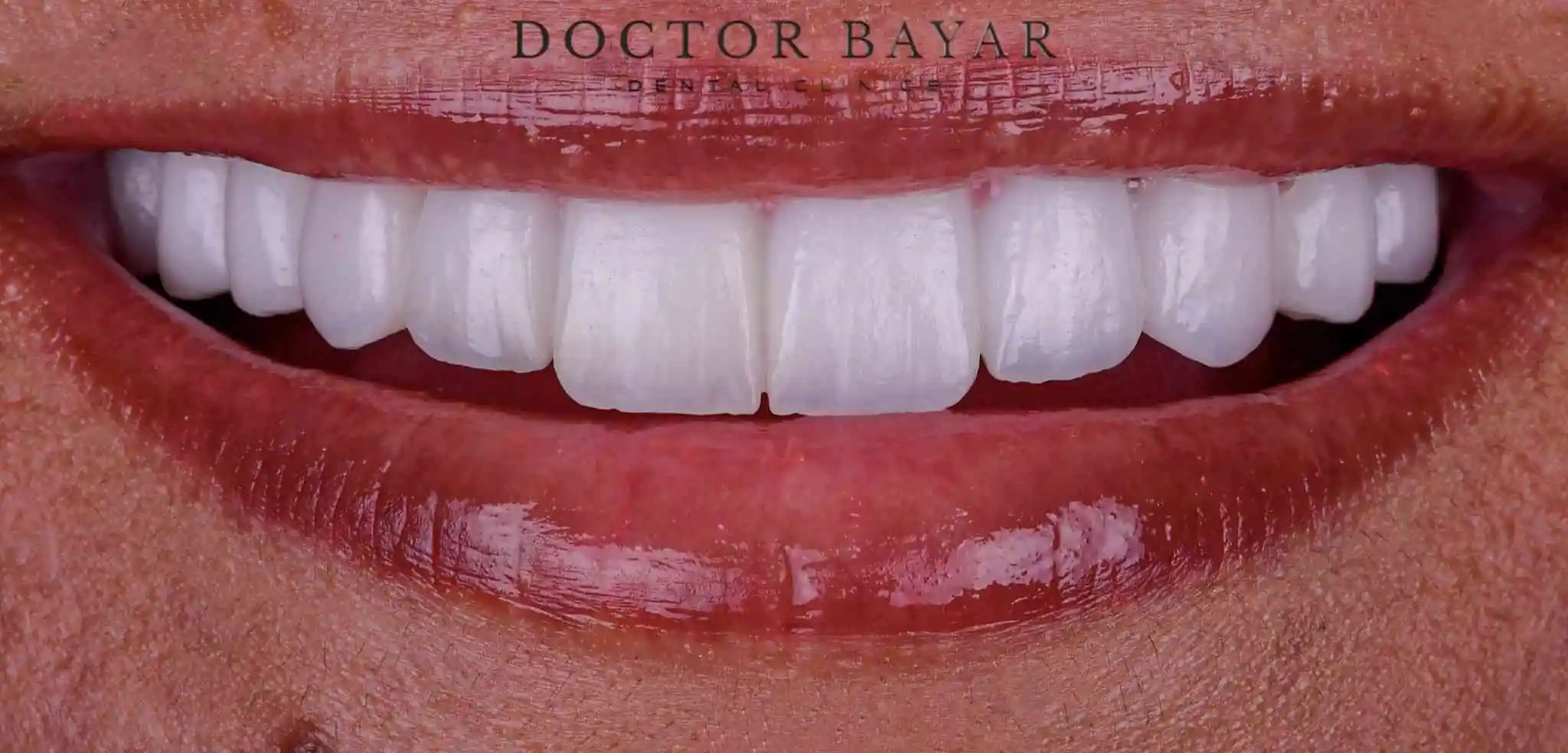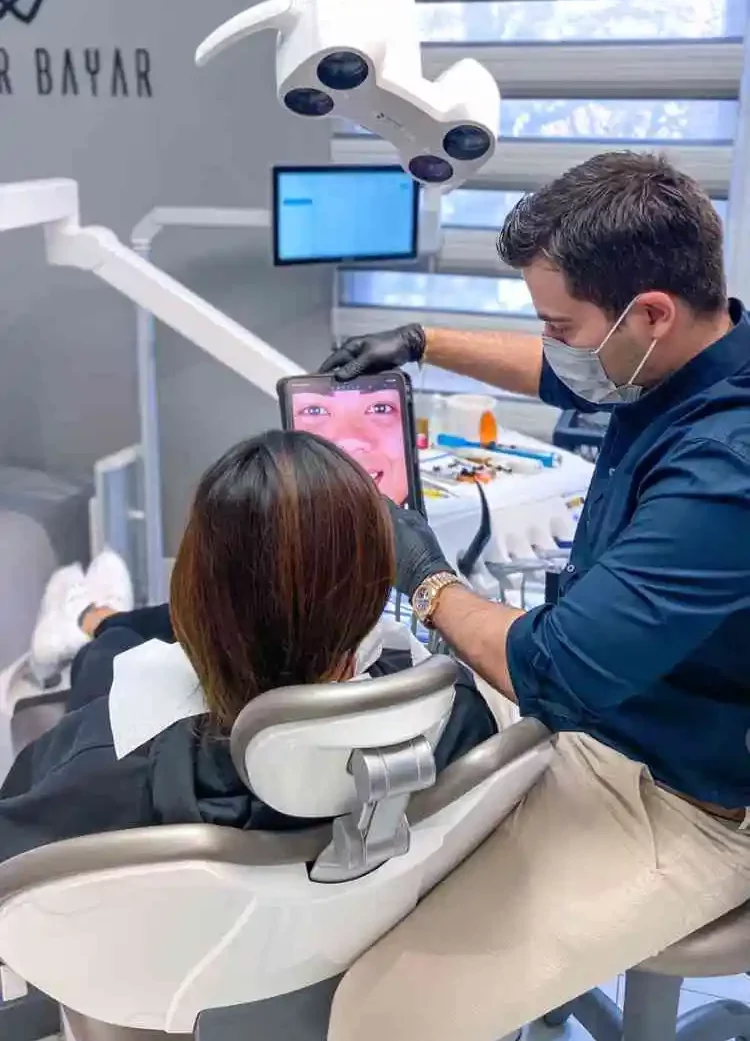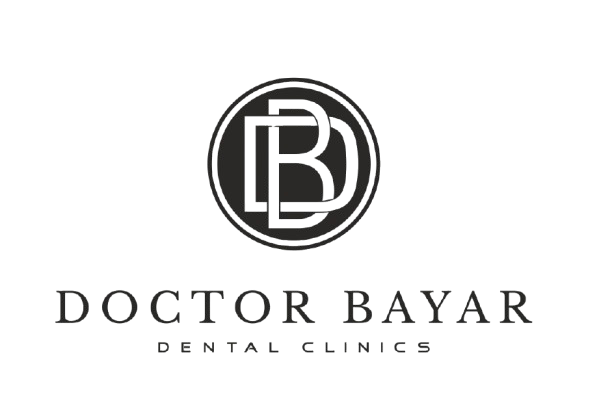Zirconia Crowns: The Ultimate Guide to a Durable and Aesthetic Dental Solution
Zirconia crowns are one of the most popular options in modern dentistry, boasting exceptional durability combined with aesthetic appeal and biocompatibility.

What Are Zirconia Crowns?

Zirconia crowns are dental restorations made from zirconium dioxide, a type of strong and durable material. Because of its strength, zirconia is an excellent choice for dental restorations, especially in people who need crowns on their molars or other parts of the mouth that bear heavy stress.
In contrast to traditional metal-fused porcelain crowns, zirconia crowns possess a greater resilience against chipping or breaking, all the while presenting a more natural appearance that blends effortlessly with your existing teeth.
Types of Zirconia Crowns
There are two major types of zirconia crowns.
1. Full-contour zirconia crowns: These consist entirely of zirconia and are usually applied at the posterior part due to their strength and durability.
2. Zirconia crowns with a porcelain layer: They consist of a base made from zirconia and a layer of porcelain. These crowns can normally work on anterior teeth since they provide more natural and cosmetic appearances.
Advantages of Zirconia Crowns
Compared to other dental crowns, zirconia crowns have several advantages, which include:
• Durability: Regarding durability, zirconia is one of the strongest materials used in dentistry; thus, this makes zirconia crowns highly resistant to wear. This tooth quality is very suitable for people who grind their teeth or have a heavy occlusion.
• Aesthetic Appearance: Zirconia crowns are very similar to the appearance of natural teeth and have a translucency that perfectly harmonizes with other adjacent teeth. Accordingly, they can be applied for both front and back teeth.
• Biocompatibility: It is one of the most biocompatible materials; thus, allergic reactions or irritations in the gums are less frequent than with metal-based crowns.
• Minimum tooth preparation: It is common that the placement of a zirconia crown requires less removal of tooth structure compared to other types of crowns.
• Longevity: Whenever treated properly, the crowns of zirconia can survive several years; thus, it proves to be more economical over time.
Disadvantages of Zirconia Crowns
While zirconia crowns have many advantages, there are various disadvantages to consider:
• Expense: In general, the cost of zirconia crowns is higher compared to other types of crowns, such as porcelain-fused-to-metal crowns. However, their outstanding durability and strength often make them well worth the investment.
• Opacity: While the zirconia crowns can be engineered to appear natural, they may not match the complete translucency effect captured by all-ceramic crowns. This has been one major talking point for patients who seek to produce as natural an appearance as possible with their front teeth.
• Wear on Opposing Teeth: In certain instances, zirconia crowns may lead to wear on the opposing teeth, especially if the patient tends to grind their teeth.
The Process of Getting a Zirconia Crown
The steps for getting a zirconia crown usually involve the following:
At the initial consultation, we will evaluate your teeth to determine whether a zirconia crown is the best option for your dental needs.
- Tooth Preparation: The tooth that is to be crowned is shaped, and the shaping may involve the removal of a small amount of tooth structure.
In such situations, we will take impressions of your teeth to which a tailored zirconia crown will be prepared.
- Provisional Crown: While your final zirconia crown is manufactured, a provisional crown can be placed to protect your tooth.
- Crown Placement: Once your zirconia crown is ready, we remove the temporary crown and securely cement the permanent crown in its place.
How to Care for Zirconia Crowns
Caring for zirconia crowns is similar to caring for your natural teeth. Here are some tips to ensure the longevity of your crown:
• Brush and Floss Regularly: Maintain good oral hygiene by brushing your teeth twice a day along with flossing daily.
• Avoid Hard Foods: While the zirconia crown is strong, it is still recommended to avoid chewing on hard foods like ice or hard candy because these can still cause damage to the crown.
• Regular Checkups: Make regular visits to the dentist for checkups and cleaning of your teeth to keep your crown in great shape.
• Consider wearing a night guard. If you find yourself grinding your teeth at night, your dentist may recommend wearing one to protect your crown from excessive wear.
Zirconia Crowns vs. Other Types of Crowns
When contemplating the choice between zirconia crowns and their various alternatives, it becomes essential to weigh the advantages and disadvantages of each option. Here follows a comparison of zirconia crowns alongside other prevalent types of crowns:
Although Porcelain-fused-to-metal (PFM) crowns are quite strong, in some cases, the metal base tends to show through the porcelain, especially around the gum line. Zirconia crowns provide a more natural appearance than PFM crowns. PFM crowns are always less expensive compared to zirconia crowns; however, they may not last long. All ceramic crowns (emax crowns) are less durable than zirconia crowns and are more prone to chipping or breaking. Allceramic crowns offer excellent aesthetics, with a high level of translucency that mimics natural teeth. All-ceramic crowns are typically more expensive than zirconia crowns.
Frequently Asked Questions Zirconia Crowns
With proper care, zirconia crowns can last 10-15 years or even longer. Their durability makes them a long-term solution for dental restorations.
Yes, zirconia crowns are safe and biocompatible. They are less likely to cause allergic reactions or gum irritation compared to metal-based crowns.
No, zirconia crowns cannot be whitened with traditional teeth whitening methods. If you are considering teeth whitening, it’s best to do so before getting a zirconia crown to ensure a uniform color.
The cost of zirconia crowns can vary depending on factors such as location and the complexity of the procedure. On average, zirconia crowns can range from $200 to $1000 per tooth.
Zirconia crowns are generally more durable than porcelain crowns, making them a better choice for back teeth or patients who grind their teeth. However, porcelain crowns may offer a more natural appearance for front teeth.
If you’re considering zirconia crowns, be sure to consult us to discuss your options and determine if they’re the right choice for you. With the right care and attention, your new smile could be just a few appointments away! Contact us via WhatsApp: +90 530 889 2139, email: [email protected], or direct message on our Instagram page (doctor.bayar).
